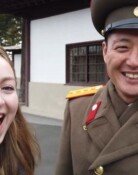New PM Was Born in Pyongyang
Han Myeong-sooks life has been marked by separations and activism. She was born in Pyongyang and came to South Korea right after the Korean War with her parents.
Her sons name is Park Han-gil, which is a combination of her husbands family name, her family name, and gil. Her son joined the army last February and serves in Gyeonggi Province.
Han was a female activist in the 1980s and 1990s. But she was not always interested in politics. She said that during her university years, she did not know the world around her very well.
It was her husbands imprisonment that motivated her to work as a dissident. In 1974, she served as a manager of the womens affairs department of the Christian Academy and worked for human rights. In 1979, when managers of the academy were accused of promoting a pro-communist ideology, she was imprisoned for two and a half years herself. During that period, she and her husband were in prison at the same time.
She entered politics in 2000 when the Millennium Democratic Party was formed. She joined the party with the help of former president Kim Dae-jung. That year, she joined the National Assembly after the 16th general election under the system of proportional representation. While she served as the minister of environment, she criticized inefficient practices such as wearing ties in the office and staying in the office until the bosses left.
Last year, directly after the October re-election, she stepped down from the standing central committee with the resignation of the leadership of the governing Uri Party. She learned economics from experts such as college professors.
President Roh Moo-hyun nominated her as the new prime minister, emphasizing the need to pursue harmony politics. If confirmed by the National Assembly next month, she will become the first female prime minister.
Han always stresses soft power that moves the world. Even in the harsh political scene, she shows a moderate and genial personality and has few enemies. When her husband was in prison in the past, she was said to resort to the letters sent from her husband for comfort. Now she turns to the letters from her son in the army for comfort.
People may wonder whether the politics of motherly affection can develop into the politics of coexistence. She now faces a test.
Jung-Hun Kim jnghn@donga.com jin0619@donga.com







